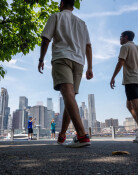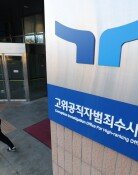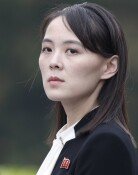World guessing as to date of N.Korea`s 3rd nuke test
World guessing as to date of N.Korea`s 3rd nuke test
Posted February. 12, 2013 08:46,
Geopolitical risk on the Korean Peninsula will peak this week amid North Korea`s renewed threat to conduct a third nuclear test, whose timing is expected to be affected by two key events this month.
U.S. President Barack Obama will make the annual State of the Union address Tuesday, while the birthday of the former North Korean leader Kim Jong Il falls on Saturday. So Pyongyang could choose either of the two days to conduct the test.
Starting with a Jan. 23 statement made by the North Korean Foreign Ministry, North Korea made comments hinting at its nuclear test plan. When the country will go ahead with the test remains unknown, however. Government officials and experts in South Korea say the nuclear test could come after the new administration in Seoul is inaugurated Feb. 25.
The following four key factors will affect the Stalinist country`s decision.
① China`s carrot and stick diplomacy
China might have used soft punishment against North Korea by freezing its bank accounts or reducing energy and military food support. While outwardly pressuring Pyongyang, Beijing could have simultaneously promoted a carrot approach as exemplified by the secret visit to China by North Korean leader Kim Jong Un and Beijing`s pledge to help solidify his regime and expanded support for the North.
U.S. State Department spokeswoman Victoria Nuland said Friday, "We have been completely in sync with China," adding that Washington is "very satisfied" with the efforts of the countries in the six-party talks and the United Nations Security Council, apparently expressing satisfaction with China.
② Strong int`l warnings
South Korea and the U.S. have sent strong warnings to North Korea not to conduct the nuclear test, warning of preemptive attacks on the North`s nuclear facilities.
South Korean military authorities said Monday, "We are considering using unmanned attack choppers to incapacitate North Korean bases, such as striking long-range artillery tubes and air-cushion vehicles near the Northern Limit Line and the Military Demarcation Line."
The U.N. Security Council also threatened to take stern action if Pyongyang commits additional provocations. How much North Korea can tolerate such sanctions and its diplomatically isolated situation will affect its movements.
③ N. Korea policy of next S. Korean president
Another view is that North Korea is delaying the nuclear test to assess President-elect Park Geun-hye`s stance and devise strategies in response. If she exercises a hard-line policy of no tolerance for the North`s nuclear stance, Pyongyang will endure cold relations with Seoul over the next five years and could delay the test after this month.
On speculation that the test will come within two weeks from installation since the measuring equipment is vulnerable to humidity, a high-ranking official in Seoul said, "Such a (technological) thing is not a big issue," implying that the test and timing will be politically determined.
④ N. Korea`s internal situation
South Korea is also keeping its eyes on the North`s internal state. If its leader, who is considered to have a relatively weak power base, conducts the nuclear test under pressure from military hardliners, persuasion and pressure from the outside world will have little effect.
Park Byeong-gwang, a researcher at the Institute for National Security Strategy, in Seoul, said, "Nuclear tests are decisions made by North Korean military authorities and ruling Workers` Party officials. If Kim Jong Un pushes ahead with the nuclear test, military hardliners will raise their voices and Kim could get dragged by them."
lightee@donga.com







